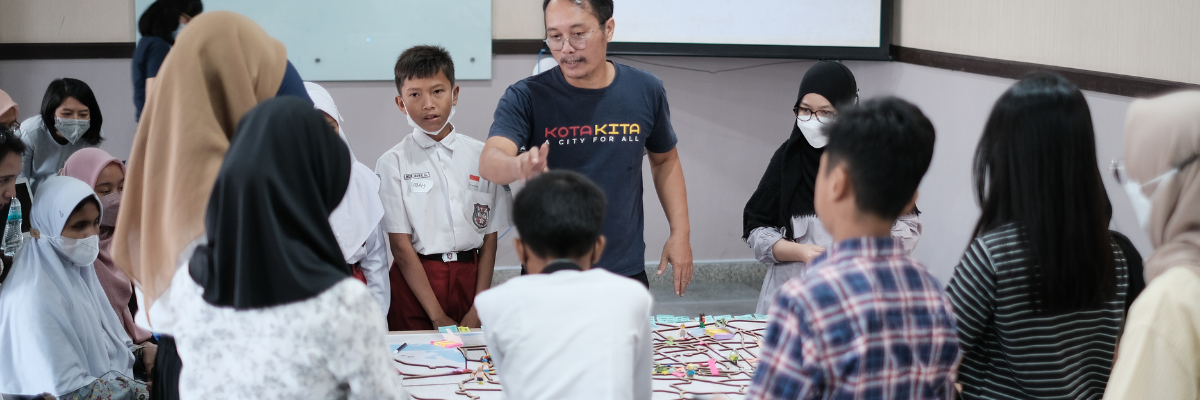UK PACT Future Cities: Improving Low-Carbon Transport for All
Multiple cities
Indonesia’s transportation sector is responsible for almost one-third of the country's energy-related emissions. As global temperatures continue to rise, reducing reliance on private, fossil-fueled transportation modes like cars and improving low-carbon transport options in cities becomes crucial for a more climate-resilient future. However, the current infrastructure in Indonesian cities does not adequately meet the needs of vulnerable groups, such as persons with disabilities, the elderly, children, and women, who often face significant challenges when using public transportation, walking, or cycling safely and comfortably and safely.
Kota Kita has partnered with Arup Indonesia and received support from the UK government through funding from the UK PACT (Partnering for Accelerated Climate Transitions) program. Together, we are currently undertaking the Future Cities: Enabling the Shift to Low-Carbon Transport through Safety Improvements for Vulnerable Groups initiative in two Indonesian cities: Semarang and Makassar. The partnership focuses on conducting assessments that promote the enhancement of low-carbon transport options, including public transportation services and active transport modes like walking and cycling, making them more accessible and safer for all citizens, particularly marginalized groups such as persons with disabilities, the elderly, children, and women. Additionally, the partnership aims to strengthen the capacity of transport governance agencies in Indonesian cities to collaborate on promoting low-carbon transport initiatives.
The data collection process begins with a perception survey, targeting a wide range of citizens and stakeholders in public transportation services, to understand the mobility challenges faced by vulnerable groups in the city. Findings from the perception survey are then followed up with a series of creative and immersive workshops with select representatives from the survey to gain nuanced and in-depth insights. These workshops include journey mapping, photo voice workshops, nighttime walks, and shadowing participants during their daily journeys. We ensure the inclusivity of our methods by adapting them to different individual abilities. For instance, we use tactile maps for visually impaired participants and incorporate clear visual cues and sign language interpreters for Deaf and hard of hearing participants in all activities. To further ensure meaningful participation from the representative vulnerable groups, we intentionally invite "beginners", i.e., residents who have previously been inactive in community activities, to the workshops.
